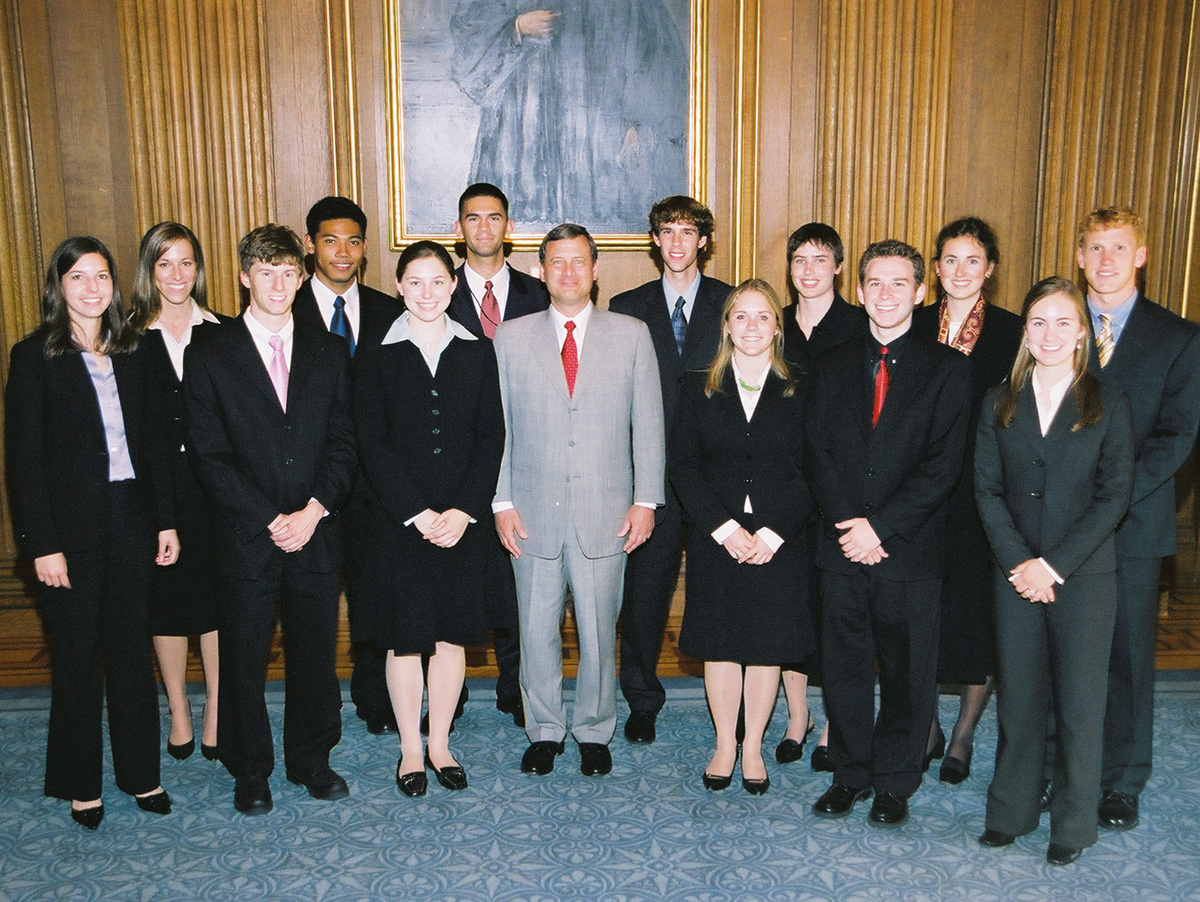The Science and Technology Policy Internship Program, run by U.Va.’s School of Engineering and Applied Science, is believed to be the only one of its kind in the country —public policy internships specifically for engineering students.
The U.Va. students have participated in a broad array of internships in the legislative and executive branches of the federal government, including the House Science Committee Research Subcommittee and the White House Office of Science and Technology Policy. They also worked for government agencies, such as the National Institutes of Health and the National Science Foundation, and nongovernmental organizations, such as the Amazon Conservation Team.
“As technology penetrates almost every aspect of our lives, it becomes increasingly important for government officials to posses an understanding of science and technology so they can make informed decisions and effective policies,” said Edmund P. Russell III, director of the summer internship program. “Our students, because of their technical backgrounds, are frequently asked to work on substantive projects that both require an understanding of technology and advance the mission of their organizations.”
A list of the student projects, and their presentation times follows.
University of Virginia Research Symposium
Science and Technology Policy Internship Program
10:00 — Erin McElroy, National Science Foundation. Evaluation of UNESCO’s Man and the Biosphere Program
10:20 — Peter Sauerwein, International Relief and Development. U. S. Coca Eradication Policy in Colombia
10:40 — Sarah Foster, National Foreign Trade Council. The U. S. – Peru Free Trade Agreement: A Policy Analysis
11:00 — Ben Cooper, Amazon Conservation Team. Ethics, Economics, Pharmaceuticals, and Frogs
11:20 — Break
Session 2: Energy and Environment
1:00 — Jeff Rominger, Environmental and Energy Study Institute. Federal Green Building Policy and the U. S. Green Building Council
1:20 — Lee Watson, Federal Government. Alternative Energy Policy: A Critique of the Government’s Perspective and Actions toward Automotive Alternatives
1:40 — Valerie Skinner, White House Office of Science and Technology Policy. University Role in Meeting the Energy Challenges: Technology Innovation to Commercialization
2:00 — Margaret Bonner. Virginia Secretary of Technology. Energy Research and Development in Virginia
2:20 — Break
Session 3: Information Technology
2:40 — Jon Carrier, House Committee on Science, Subcommittee on Research. Legislative Options for Network Neutrality
3:00 — Jonathan Smith. Senate Committee on Commerce, Subcommittee on Science and Technology. High Performance Computing: Background, Applications, Legislation, Issues, Recommendations
3:20 — Break
Session 4: Managing Science and Technology
3:40 — Emily Hesaltine, Federation of American Scientists. Are We Really Ready? Emergency Preparedness in the 21st Century: Influencing Policy with Technology
4:00 — Jenny Saik, National Institutes of Health. The Use of Lotteries as Recruitment Tools in Human Subjects Research
4:20 — Marin Odioso, National Capital Planning Commission. Evaluation Criteria for the National Capital Planning Commission’s Rail Relocation Initiative
###
For more information, call Edmund Russell at (434) 982-2623 or contact him by email at epr5d@virginia.edu.
Media Contact
Article Information
August 2, 2006
/content/university-virginia-engineering-students-apply-their-skills-public-policy-summer-policy

